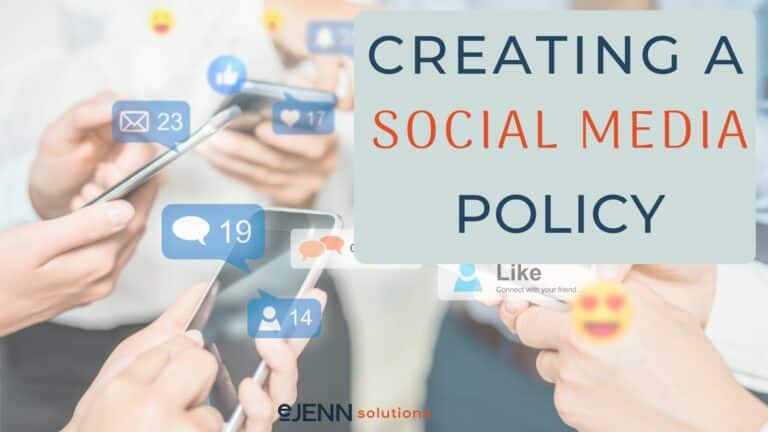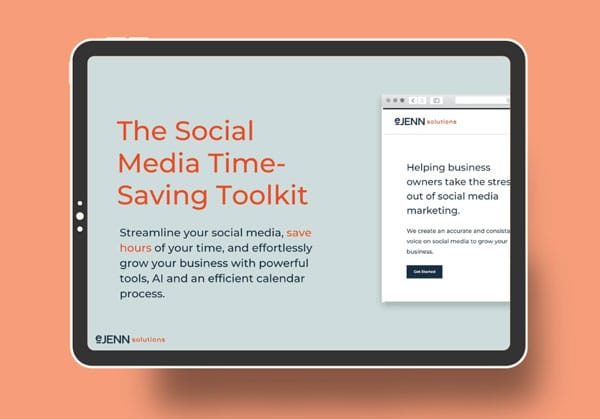
In today’s digital age, social media has become integral to our personal and professional lives. It offers numerous opportunities for businesses to engage with their target audience, build brand awareness, and drive growth. However, with great power comes great responsibility. Organizations must establish a well-defined social media policy that governs employees’ use of social platforms, ensuring consistency, professionalism, and protection of company interests. This comprehensive guide will delve into the key components of a successful social media policy and provide actionable insights to help your organization create a policy that outranks competitors.
Table of Contents
1. Understanding the Importance of a Social Media Policy
2. Crafting a Clear and Concise Social Media Policy
3. Employee Guidelines for Social Media Usage
4. Protecting Confidential Information and Intellectual Property
5. Crisis Management and Damage Control
6. Monitoring and Compliance
7. Training and Education
8. Conclusion
1. Understanding the Importance of a Social Media Policy
A robust social media policy serves as a roadmap for employees, guiding them on appropriate behavior and best practices when engaging with social media platforms on behalf of the company. It establishes a framework that aligns with the organization’s goals, values, and brand image. A social media policy outlining expectations mitigates risks, minimizes legal liabilities, and safeguards the company’s reputation.
2. Crafting a Clear and Concise Social Media Policy
You want to focus on clarity, brevity, and comprehensiveness to create a highly effective social media policy. The policy should encompass the following elements:
2.1 Purpose
Clearly define the purpose of the social media policy, emphasizing its role in maintaining brand consistency, protecting the company’s reputation, and ensuring responsible social media usage.
2.2 Scope
Outline the scope of the policy, specifying which employees are subject to its guidelines and clarifying whether it applies to both company-sponsored and personal social media accounts.
2.3 Authorized Users and Account Management
Detail who is authorized to access and manage official social media accounts on behalf of the organization. Clearly define the account creation process, access controls, and account recovery or termination steps.
2.4 Rules of Engagement
When representing the company on social media platforms, provide specific appropriate behavior, tone, and language guidelines. Emphasize the importance of professionalism, respect, and adherence to legal and ethical standards.
2.5 Content Guidelines
Specify the types of content that can be shared, ensuring it aligns with the organization’s values and objectives. Address copyright infringement concerns and plagiarism, and guide the usage of images, videos, and other media.
2.6 Legal and Regulatory Compliance
Highlight the importance of adhering to applicable laws, regulations, and industry-specific guidelines when engaging on social media. Provide examples and case studies to illustrate potential legal risks and consequences.
2.7 Privacy and Data Protection
Educate employees about respecting user privacy and safeguarding personal and confidential information. Specify guidelines for handling customer data and ensuring compliance with data protection regulations.
3. Employee Guidelines for Social Media Usage
You’ll want to establish clear guidelines for employees to keep pace with your competitors and ensure your social media policy stands out. Consider the following:
3.1 Personal Social Media Usage
Address employees’ use of personal social media accounts, emphasizing the need to separate personal and professional identities. Encourage responsible sharing and guide privacy settings and personal branding.
3.2 Employee Advocacy
Promote employee advocacy on social media platforms while setting expectations for responsible sharing. Encourage employees to amplify the company’s message and values while providing guidelines to avoid potential conflicts of interest.
3.3 Disclaimers and Disclosures
Educate employees about the importance of disclaimers and disclosures when representing the company online. Provide clear instructions on how to disclose affiliations and connections to the organization.
3.4 Handling Negative Comments or Feedback
Equip employees with strategies to handle negative comments or feedback professionally and empathetically. Stress the significance of de-escalation techniques and the need to redirect concerns to appropriate channels.
4. Protecting Confidential Information and
Intellectual Property
To gain an edge in search rankings, emphasize protecting confidential information and intellectual property within your social media policy. Consider the following:
4.1 Non-Disclosure Agreements
Outline the importance of signing non-disclosure agreements (NDAs) to safeguard sensitive company information. Provide employees with clear instructions on what constitutes confidential information and their responsibilities in protecting it.
4.2 Intellectual Property Rights
Educate employees on the organization’s intellectual property rights, including trademarks, copyrights, and patents. Clearly define the limitations on sharing proprietary information and provide guidelines for proper attribution and citation.
4.3 Social Media Account Security
Emphasize the significance of maintaining strong passwords, enabling two-factor authentication, and regular security checks for official social media accounts. Educate employees on common security threats such as phishing and social engineering.
5. Crisis Management and Damage Control
To provide a guideline for your preparedness in handling social media crises, incorporate the following elements into your social media policy:
5.1 Incident Reporting
Establish a clear process for employees to report potential social media incidents, such as data breaches, account compromises, or inappropriate content. Ensure employees understand their role in mitigating risks and escalating issues promptly.
5.2 Response Protocol
Create a step-by-step response protocol for handling social media crises. Define the roles and responsibilities of key personnel involved in crisis management and establish communication channels to ensure a timely and coordinated response.
5.3 Drafting Public Statements
Provide guidelines for crafting public statements during a crisis, emphasizing transparency, empathy, and accountability. Address various crisis scenarios and outline appropriate actions to protect the organization’s reputation
6. Monitoring and Compliance
To identify and be transparent regarding your commitment to monitoring and enforcing the social media policy. Consider the following:
6.1 Monitoring Tools and Technologies
Explore social media monitoring tools to track mentions, sentiment, and engagement related to your brand. Provide employees with an overview of the monitoring process, ensuring transparency while respecting privacy rights.
6.2 Compliance Audits
Regularly conduct compliance audits to assess adherence to the social media policy. Establish mechanisms for reporting violations confidentially and ensure consistent enforcement of policies and disciplinary actions when necessary.
7. Training and Education
To help foster a culture of social media responsibility, prioritize training and education initiatives. Consider the following:
7.1 Training Programs
Develop comprehensive training programs to educate employees on the company’s social media policy, its underlying principles, and best practices. Offer interactive sessions, workshops, and online resources to reinforce learning.
7.2 Continuous Learning
Encourage continuous learning by staying updated with evolving social media trends, policies, and legal requirements. Provide employees with resources for ongoing education, such as webinars, industry conferences, and professional certifications.
Final Thoughts
Creating a well-crafted and comprehensive social media policy is essential for organizations aiming to outrank competitors and establish a strong online presence. By addressing key aspects such as employee guidelines, protection of confidential information, crisis management, monitoring, and training, your organization can effectively navigate the dynamic landscape of social media while mitigating risks and safeguarding its reputation. Remember, a strong social media policy is a powerful tool that protects your organization and empowers employees to become responsible digital ambassadors.
IF you’d like assistance putting together a social media policy and strategy for your business or marekting team – we’d love to learn more! Easily schedule a quick 15 min. phone call with us to see if we’re a good fit for your organization: Schedule a phone call with eJenn Solustions, Inc
